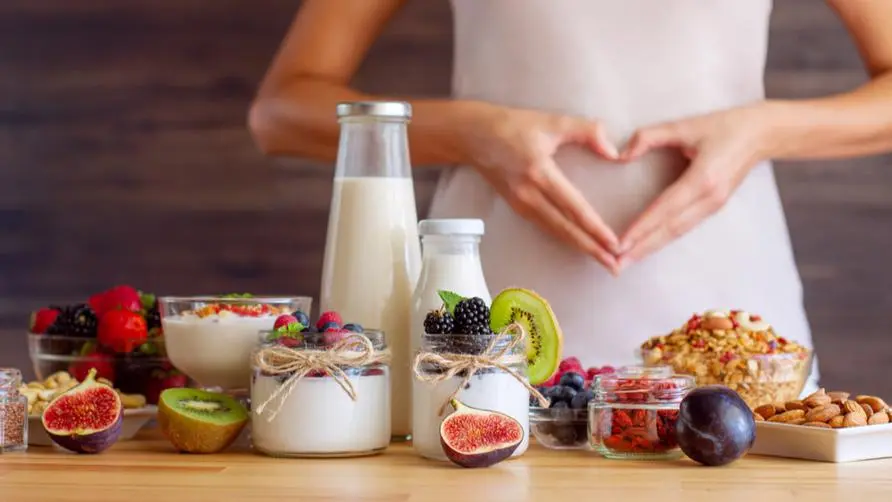Yu Yuanqi passed away from intestinal cancer/1 picture to understand the "intestinal cancer prevention" diet! Nutritionist: Master the controllable factors of diet

Is eating processed food prone to cancer? Nutritionist: 5 negative diets to avoid
Yu Tian’s daughter Yu Yuanqi died of intestinal cancer at the age of 39. According to statistics from the Taiwan Health Promotion Administration, 17,302 new cases of colorectal cancer occur each year, ranking first among the top ten cancers for a long time. There are many risk factors for bowel cancer, including: age (over 50 years old), family history and even eating habits. Nutritionist Jian Yuhua said in an exclusive interview with healthorn that many studies have explored the impact of dietary factors on bowel cancer, and they are all quite evidence-based. Therefore, developing good habits in daily diet can also reduce the relative risk. If you have long-term improper diet, such as excessive eating, Processed foods, foods high in refined sugar, excessive intake of saturated fat or too little fiber may affect the health of the intestinal wall and increase the risk of intestinal polyps and cancer.
Nutritionist Jian Yuhua said that intestinal polyps are one of the main risks of intestinal cancer. There are often no obvious signs of polyps in the early stages. People should pay attention to avoid bad eating habits, such as frequent intake of highly processed foods, high food additives and processed red meat. In addition, you should also pay attention to the intestinal bacteria. It is recommended that everyone make good use of resources. For example: since colorectal cancer in Taiwan mostly occurs after the age of 50 (of course there is also a trend of decreasing age), the National Health Department subsidizes people aged 50-74 to have a quantitative immunoassay fecal occult blood test every two years. ; And if you do not meet the age group for subsidies and there are abnormalities, you can also have relevant examinations at your own expense. Research shows that excessive intake of saturated fatty acids, protein, or abuse of drugs and antibiotics may increase the risk of intestinal inflammation.
Nutritionist Jian Yuhua pointed out that diet and living habits that affect the intestines can be roughly divided into two categories: “positive effects” and “negative effects.” The more unfavorable negative factors include: intake of refined sugar, changes in pH, saturated fatty acid intake, excessive protein intake, hydrogen ion pump blockers and antibiotic abuse; positive factors that can promote intestinal protection include : Ingest more probiotics and increase dietary fiber intake.
Insufficient fiber intake is more dangerous! Is difficulty defecation likely to cause intestinal disease?
Is long-term insufficient fiber intake prone to intestinal tumors? Nutritionist Jian Yuhua said that dietary fiber can be divided into two categories: water-soluble fiber and non-water-soluble fiber. Insoluble fiber is mainly crude fiber, which can increase intestinal peristalsis, shorten the time for feces to pass through the intestines, and prevent the contact time of toxic substances with the intestinal wall; water-soluble fiber can absorb water, making feces soft and easy to be excreted, thus Prevent constipation. On the contrary, insufficient fiber can easily cause difficulty in defecation, causing harmful substances in the feces to continuously irritate the intestinal wall, which increases the risk of disease.
Nutritionist Jian Yuhua reminds that Taiwanese people generally have insufficient fiber intake, and they often do not realize it. The recommended daily fiber intake for adults is 25-30 grams. However, based on the ratio of a foreign foodie’s bento, a bowl of vegetables only contains about 2 grams of fiber, and that of fruits is about 1.5-1 grams. If the staple food is refined grains such as white rice and flour, the daily fiber intake is often far lower than the standard value, which will adversely affect the intestinal tract.
How to increase daily fiber intake? White rice can be cooked with red quinoa and edamame
Nutritionist Jian Yuhua suggests that to increase fiber intake in daily drinks, you can choose boxed multigrain rice instead of white rice. Or choose unrefined starches such as sweet potatoes and corn from supermarkets. You can also use red quinoa with white rice to take into account fiber intake and delicious taste. White rice can be cooked with edamame to make edamame rice to increase the intake of soy fiber.
In addition, the intake of high-fiber diet also includes moderate intake of nuts; eating more whole grains such as brown rice, oats, corn, and sweet potatoes; for beans, choose unprocessed pod beans and dry beans, such as soybeans and edamame; vegetables You can choose bamboo shoots and celery with more crude fiber. It is recommended to eat fruits with their skins. Pears, peaches, apples, and guava are common high-fiber fruits. Appropriate amount of unsaturated vegetable oils can also help defecation.
Nutritionists remind that eating more fruits and vegetables, whole grains and beans can increase your daily intake of fiber and various antioxidant nutrients. Give priority to original (unrefined) foods so that your body can obtain sufficient micronutrients, dietary fiber and Phytochemicals, food cooking methods such as steaming, boiling, and roasting are recommended to help control dietary factors and reduce the risk of intestinal lesions and cancer.
Further reading:





